|
I have always been intrigued and passionate about the ocean from a very young age. This love was sparked by joining my dad on fishing trips and watching natural geographic documentaries with him. I therefore dedicated my whole life to making my dream of becoming a marine biologist a reality. I chose science related subjects in high school and completed marine science courses at the Two Oceans Aquarium in Cape Town, South Africa and thereafter become a volunteer. I then moved onto studying towards a Bachelor of Science degree majoring in marine biology and oceanography at the University of Cape Town. I am now currently completing my honours degree in oceanography specializing in environmental influences on killer whales at Marion Island.
Although I have plenty of experience regarding theory work, I felt that I needed more field experience. I wanted to apply everything I learnt during university to a more practical setting. An internship opportunity appeared at the Oceans Research Institute in Mossel Bay and I thought this was exactly what I needed. I was able to expand my researching skills as well as learn new skills. Before my arrival on the 1st of August, I was filled with a mixture of emotions. This month would be the longest I’ve been away from home and my family. I was feeling nervous about leaving home and learning to live and work with new people. On arrival, all my fears dissipated. Everyone was extremely welcoming and kind. Our group of interns consisted of a mixture of people from different countries and expertise. We were led by amazing field specialists that we both knowledgeable and patient. I could learn from everyone present. My first day on the boat, I saw my first great white shark, it was unreal! Our job was to note the different morphological features of the sharks we saw and identify them based on these features. In the moment, I was in too much shock to notice any small details. They were so much larger when seen in real-life. I became much more efficient at doing this job overtime. I was also made aware of how crucial these magnificent animals were to the functioning of the ecosystems, not only in Mossel Bay, but along the whole Southern coast of South Africa. It was a great interest of mine to learn about great white shark population dynamics and the various research being done to answer questions about them. I was grateful to contribute even the slightest bit towards great white shark research, even if it was just through the process of data collection. Other than the thrilling experience of sighting white sharks, there has been various noteworthy projects that we worked on. These include tracking bottlenose & humpback dolphins across the bay, performing intertidal surveys, fishing, animal husbandry, marine plastic analyses, snorkelling, bioacoustics and tagging small catsharks. Fishing was the most exciting project as we were never aware of the fish species we would catch that day. Some species included Pajama sharks, leopard catsharks, puffadder shysharks, starry smoothhound sharks, soupfin sharks and even yellow-bellied rockcods. It was such a fulfilling experience to be working first-hand with these animals. We were able to not only gain practical skills, but also knowledge in the form of short theory courses. These ranged from marine mammal stranding, dissection, tagging, bioacoustics, science communication, white shark population dynamics, sea turtles to various shark research studies. I learnt so much and now have a much better idea of the kind of research work I would like to partake in in the future. I am even able to apply some of the knowledge gained from the bioacoustics and science communication courses in my honours research project that I am currently working on. One of the most important lessons I have learnt at Oceans Research Institute is that “teamwork makes the dreamwork”, taught to us by our head field specialist. Working as a team allows the daily shifts to flow easier and efficiently, allowing for the least amount of stress to be put on the animals we are studying. We also uplift and support one another, creating an amazing working environment. Lastly, when out in the field, we often get lost in the work of data collection. It is important to take a step back and appreciate the beauty of our work and be proud of becoming the person our younger selves always dreamed of becoming.
1 Comment
Where do I begin? Participating in this fellowship this summer has made it one of the most fun summers I’ve ever had. I met so many great people and had so many experiences that that I likely would not have had otherwise. Were many of the days exhausting? Yes. Would I change it? No. Our very first day we got to meet each other, have a little pizza party, and meet all of the mentors. From the very first working day we had a full and fun experience, we woke up bright and early (some days as the fellowship went on, we woke up ‘dark and early’) and loaded up the boat and I don’t think I fully expected how many sharks and rays we would catch on the first day (31 blacktips, 9 bonnetheads, 7 cownose rays, 1 scalloped hammerhead, and 1 bluntnose ray). What a day! What was cool about the whole beginning of the process is that the mentors really made us feel like we were very prepared and capable of doing all of this from day one, even though some or a lot of the things we were doing we had not done before. They let us learn by doing and if we made a mistake, we weren’t made to feel bad about it but instead it was used a learning opportunity and personally that is how I prefer to learn. So instead of “hey, you did that wrong” it was more like “Good attempt, but here’s why we don’t do it that way. Try again” and then we’d just try again.
What was cool about this experience is the mentors wanted to make sure we gained a wide variety of experience and knowledge. So they set up the fellowship so that we had a mixed bag of things to do. From being on the boat to working with the public and kids during a week long summer camp, where we had the opportunity to do some really cool things, like build ROVs, come up with activities and experiments and teach some kids how to work with sharks! We did something called GULFSPAN where we would get to catch, work up and release sharks. We learned a variety of field techniques, we learned how to take biopsies, how to draw blood, how to take fin clips, how to do microbiome swabs and we learned how to equip the sharks with various types of tags. Because we were working with so many different species of shark so often we got really good at identifying them, whereas before at least personally my identification skills were not that strong. Another thing I really enjoyed is that I was able to exercise my problem-solving skills. We were given a lot of opportunities to try to solve problems on our own and one of my stronger skills before coming to this fellowship was my problem-solving skills, so I felt that I was able to really use those and strengthen them even more. We were able to work closely with spotted eagle rays as well, which up until this internship I had never seen in person, so to get hands one experience with them was amazing. They are so cool and extremely beautiful. Working with the Eagles Rays we were exercised a lot of the same field techniques we used when working with the sharks with other new techniques and modifications also. I never thought that seeing and getting hands on experience with sharks and rays would be the norm for me and it became just part of the daily routine. To the point where when the fellowship ended it felt weird to not be on a boat, working with sharks. The mentors we worked with also gave us some opportunities here and there to learn new or extra techniques that weren’t necessarily planned things for the fellowship. I was excited to take advantage of those opportunities and I did! What was nice was throughout the fellowship we had an opportunity to meet one on one with each of the mentors and ask them anything we wanted or get help with anything we wanted and not only was I able to talk and learn from my mentors but Kristin one of the mentors was able to connect me to someone who was able to give me really helpful information that would help me in my own grad school research. What was cool about meeting him was that he connected me with ANOTHER person who is able to assist me with things in my own research as well. Which made an already positive experience even more beneficial, and I am very grateful for that. Lastly, I loved being able to participate in shark con as more than just a visitor. We had an opportunity to work the M.I.S.S. booth during the event and strengthen our outreach skills. During this time we were able to meet a lot of people and talk with them about what we do and what M.I.S.S. does. We also had times during shark con where we were able to experience it as visitors, so it was a really nice balance. It was a fun first experience with shark con. Overall, I had an amazing summer and there isn’t really much I would change. I wish I could do it all again, even thought I got the weirdest tan lines of my life. I am excited to be able to take the knowledge, experiences and the people I met with me throughout my career and I am so grateful for the opportunity. I was given the privilege to work alongside amazing people in Cape Cod, Massachusetts. To put into words my experience is difficult, but I will give it a shot. The day I received the email that I got accepted for this fellowship, I literally screamed out loud. That was by far the happiest day of my life because I was given an experience of a lifetime thanks to MISS. This opportunity helped broaden my knowledge about specifically White Sharks and helped me get over my subtle fears of them.
The day I arrived to the shark center, I was nervous of meeting everyone. I had just flown in the night before and the next day ubered to the center. I arrived, and the first person I met was the lovely Ms. Heather, who is in charge of the shark center in Cape Cod. She was very kind and full of energy which made me feel reassured. From the mentors to my intern mates, I had a blast meeting them and learning from them for as long as possible. I was empowered by being surrounded by intelligent women of science, even as a minority. My first two weeks there, I was training and learning with my intern mates. We learned about many different things, from what the shark center does to the research team to the education team to even the sharks in general. My brain was enhanced with so much knowledge from each department of the AWSC. My favorite had to be the research team which was presented by Victoria and Kelly, who were previous AWSC interns. They made it interesting and fun with games in order to learn the material with ease. After training, it was go time! I had the opportunity and privilege to work with the research team for the next two weeks. Victoria was my carpool buddy and my mentor during the experience. She assigned me to work such as white shake identification and creating infographics for the public to better understand what the research team does and the tools they use. From 9 AM to 5 PM, I would work almost non-stop because I wanted to get as much exposure as I could. I was stubborn to stop, and I just wanted to keep going. Victoria was kind to understand my feelings because she kept asking me if I wanted to leave earlier like the other interns, and I did not want to. So for the next two weeks, I worked on infographics and, if not that, then shark identification. Another exciting opportunity for me was being able to fly the drone both on land and on the boat. When I wasn’t in the office, I was with Kelly and Victoria out on Nauset Beach flying the drone. When we practiced enough on the land, we decided to take it out for a test on the boat. I, of course, made sure to pack my necessities because sea sickness was my enemy. We headed out to sea, and I was doing great with the wind in my face, but as soon as we stopped to fly out the drones, sea sickness took over, and I died (metaphorically speaking). I sadly had to come back inland, so my trip was cut short with the team, and I felt bad. I was glad that Victoria kept reassuring me that it was okay and not my fault, which helped calm me down. After that experience, I made sure to do everything I could to be prepared for the next time I went out to sea. After participating with the research team, I dove into the education aspect of the AWSC, which was community outreach. I participated in my first outreach with Ms. Kristin and Ms. Hayley. It was at a children’s museum, and we basically educated families, especially the kids, about white sharks using props we had for hands-on experience. While multitasking with the education team, I also went out to beaches with the Shark Smart team. Shark smart was in charge of educating the public at the beaches and answering any of their questions or misconceptions they have about white sharks. I also spent time in the shark center answering the public questions while then walked around the center, and I was even in the fossil pit making necklaces for the kids when they found a shark tooth. My whole time there, I built amazing connections with intelligent females and created beautiful memories together. This experience changed my life on how I view the apex predator. When I was able to meet my first white shark, I shed tears because they were just majestic creatures labeled with a bad name. This was truly one for the books, and I couldn’t be more honored and proud of myself for applying to MISS and given the opportunity to be surrounded by females in the science field that I am pursuing. There isn't a word in existence that could accurately convey how it felt the moment I received the news of my fellowship acceptance. To know that this one experience and the knowledge gained will put me that much closer to propelling my life quality and career is unmatched. Unknowingly, I have successfully fortified my legacy and am living proof of my ancestors' wildest dreams.
Since the moment I stepped onto the New college campus, I knew this opportunity would not only be life-changing but invaluable. From the mentors to the other fellows in the fellowship, there was a special connection from the very beginning. I went from being the only African American woman in all of my stem classes to being surrounded by amazing women from different backgrounds, and it was extremely refreshing. On the very first day we hit the ground running, in pure M.I.S.S fashion. From 4 am alarms to packing, baiting, and prepping the boat, I always managed to stop and sneak in glimpses of the spectacular Florida sunrise to remind myself to always stop and smell the flowers. I went from losing gear in the water while setting long lines to becoming an expert on all things shark fishing, each set helped me to grow as a scientist and gain more confidence in the field. A lot of the time we put such a negative connotation around failing or incorrectly doing a task when really some of the best gains of knowledge and experience have been taught through struggling and critical-thinking. This opportunity gave me exactly that in terms of being able to fail and having the support to learn and try again. Scientists have to do a lot of troubleshooting and problem-solving, which is arguably one of the most important skills you’ll use as a scientist. I was able to hone this skill, and I know that it will be useful in future research experiences. Understandably there are some things you just can't prepare for and catching over 55+ sharks on our second day of surveying was one of them. The rush mixed with excitement and nerves were jolted right out of my body when the first shark hit the bow, and in an instant it was like my body knew what my brain had never been taught to do. As the instincts kicked in and our instructors' voices guided my hands, I could feel the knots in my stomach rush out in communicative chaos and excitement. One after the other we perfected prepping, working up, and releasing each shark more efficiently each time. While this fellowship was packed with full days and exhausting nights, I wish I could do it all again. After this experience, I can honestly say I swam with an 8.5ft Great Hammerhead we called Genie after Eugenie Clark, got to name and helped coax two spotted eagle rays, and help an amazing group of summer campers’ learn about Marine Biology, and that is something that most people can only dream of. I am truly grateful for this opportunity and all it has provided for me as well as the spectacular group of women involved in my personal journey and marine biology career. I have not only gained knowledge and experience but more importantly I have gained mentors that I trust, friends that I will have life long relationships with, and stories my grandkids will hardly believe! When I was 8 years old, I watched the news of the Deepwater Horizon oil spill. I knew then that I wanted to work in environmental protection. When I applied to the Environmental Studies major at Boston College, I was confident it was the right choice. While I had taken many classes in environmental studies, going into the summer after my sophomore year, I still had virtually no experience in field research. I knew that was going to change as I prepared to head off to Rookery Bay Estuarian Reserve for my fellowship. My goal was to connect the things I was learning at Boston College with new hands-on experiences and I am happy to say that is exactly what I was able to do.
At Boston College, my studies revolve around the sociology of how humans interact with and impact the environment. Thus, the majority of the time my concentrations focus on how to improve human lives by mitigating their impact on the environment. At Rookery Bay I had the unique experience of seeing this come to life with educational and research opportunities. Working in the Environmental Learning Center, I learned how to explain scientific findings and research to different age groups in ways they could understand without a scientific background. This was extremely rewarding as I had learned in previous classes how important education is in changing people’s lives and how they view and affect the environment. At Rookery Bay I was able to get hands-on experience with numerous research projects. While I had worked with data regarding marine science and biology, I had never been the one collecting the data. This was an entirely new experience. In these projects, I got to see the impact humans had on the local ecosystems in south Florida. I saw this impact through trawling and shark tagging. In trawls, I had the opportunity to identify local flora and fauna and collect data, such as size and sample population. We would go to multiple bays to collect data on how the fish populations were changing because of things like construction and drainage in different areas. Trawling focused on how the ecosystems were affected, however, I got to see this on a smaller level through shark tagging which only focused on the individual species. Shark tagging was an important part of my research at Rookery Bay. We monitored juvenile sharks through tagging and recapture. We collected data on new sharks as well as recaptured sharks to later look at where these sharks had moved from and how long it had been since their last capture. This was also the first time I worked hands-on with sharks. After collecting data, I was able to organize the data in a spreadsheet to figure out which bays had the most sharks, what time the sharks were most active, and which species of shark was found the most in each bay. This made it easy to see correlations between bays, shark species, and human aspects such as drainage into those bays. This research solidified that I am on the right track for my career. It has given me a new perspective on how to connect my studies with the research I participated in this summer. I am so grateful for my experiences this summer through my MISS fellowship. My name is Naomi Scott, and I was selected as a fellow in the Eugenie Clark Field Research Skills and Leadership Program. Growing up I watched educational tv shows about the ocean and its organisms but living in Chicago, IL gave me little access to it. Overtime I realized that the ocean was something that I loved and wanted to explore but I struggled to find the ways to do that. When it came time for me to go to college I was excited to finally be able to study the ocean in an academic setting. My academic background is in Biology and Environmental Science, but I knew since I was a child that I wanted to do shark research.
All throughout college, I applied to shark research programs but could never seem to getmy foot in the door. Luckily a friend sent me the flyer for this fellowship, I applied, and thankfully I was accepted. Initially, I had no idea what to expect from the program, but I was ecstatic to finally get some hands-on experience doing shark research. I remember the first day like yesterday; we were on Tonya Wiley’s boat deploying gillnets and long lines for the Gulfspan project. I was very nervous because I’d never seen, let alone touched, a shark in person. We got our first shark, and it was an absolute frenzy of people yelling for a muscle punch, fin clip, and measurements! I remember the first time I had to call out the measurements for a shark and I had no idea what a precaudal lump was and it dawned on me that I had so much to learn and this is the experience that would teach me. It felt so surreal to finally be doing the things that I’d always said I wanted to do. It was the most invigorating feeling ever, and although there was so much I had no idea how to do, I knew I had Tonya and Jayne there to walk me through every step of the way. Before this fellowship, I’d had other research experiences, but this is the first one where I felt like a true scientist in the field collecting valuable data. I can honestly say that every week after that was a newkind of thrill that I’ll honestly never forget. One of my favorite things about this fellowship was the fact that they incorporated so many other institutions to give us a very well-rounded experience. We got to work with New College of Florida, MISS, Chicago’s Zoological Society’s Sarasota Dolphin Research Program and Havenworth Coastal Conservation. We participated in dolphin surveys, purse seines, drum lining, spotted eagle ray capture and release, data collection and entry, and even learned some basic statistics using R. Every week, we got to learn something new while building off the skills we’d learned in the previous week. This fellowship was the most fun and informative research experience I’ve ever had and truly one that I’ll never forget. I am very grateful to say that I was apart of the Eugenie Clark Field Research Skills and Leadership Program. Yo! My name is Jade Salis, and I am a graduate of Coastal Carolina University. I got my BS in marine science, minored in biology and was a graduate of the honors college, but I felt that my experience was lacking. I graduated in December of 2021 so most of my degree took place during the pandemic. I took labs in undergrad where there was some field work, but much was limited, or made virtual. This left me feeling unprepared for life after college.
|
Archives
May 2024
Categories |
About missMISS provides a community and funded opportunities for gender minorities of color who wish to enter the field of shark sciences. We aim to show that there are many gender minorities of color succeeding in and interested in this field.
We fundraise and apply for grants to create paid opportunities to attempt to knock down the financial barrier into shark sciences. We encourage other organizations in our field to do the same. |
Jump to:Our Story
Become a Member Friends of MISS Workshops Sponsorship Program Donate 2023 Annual Report 2023-2026 Strategic Plan Results Framework Final Report MISS is a registered US nonprofit, tax-exempt corporation under 501 (c)(3) of the Internal Revenue Code (EIN: 85-2192211).
|
CONTACT USMailing Address:
PO Box 10493 Bradenton, FL 34282 © COPYRIGHT 2022. Minorities in Shark Sciences Inc.
|
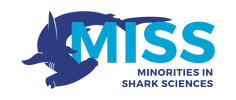
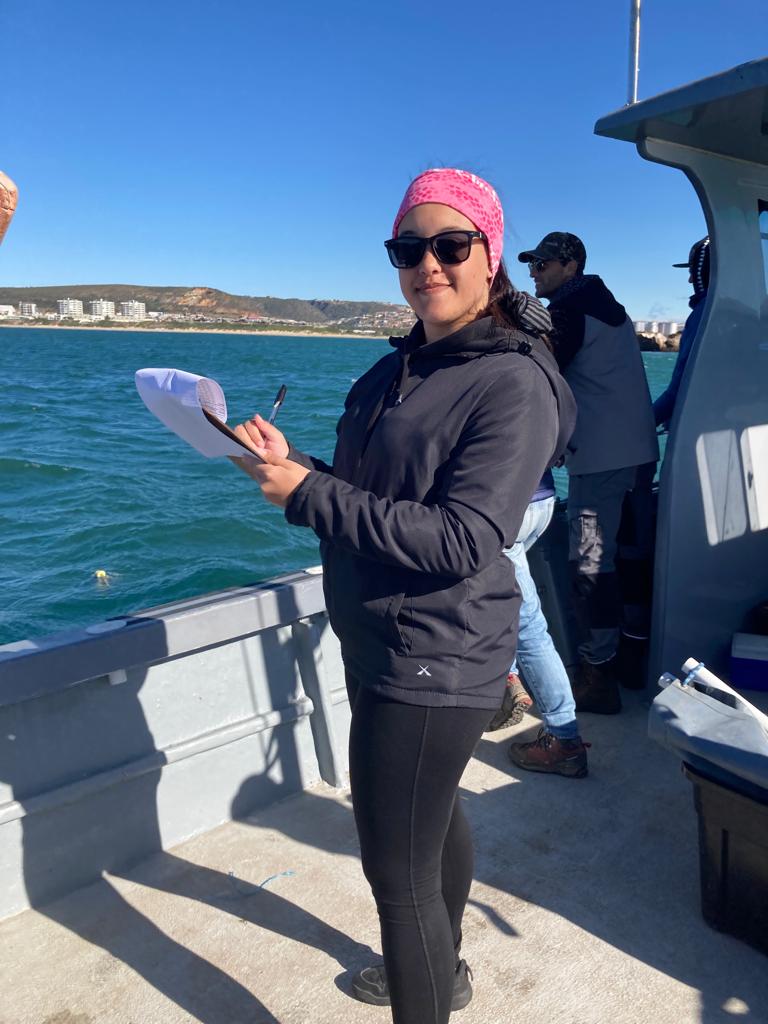
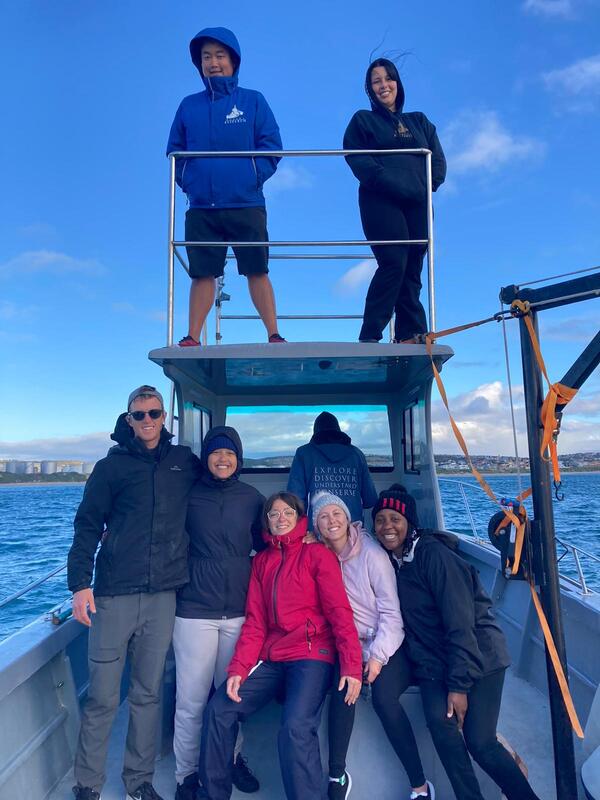
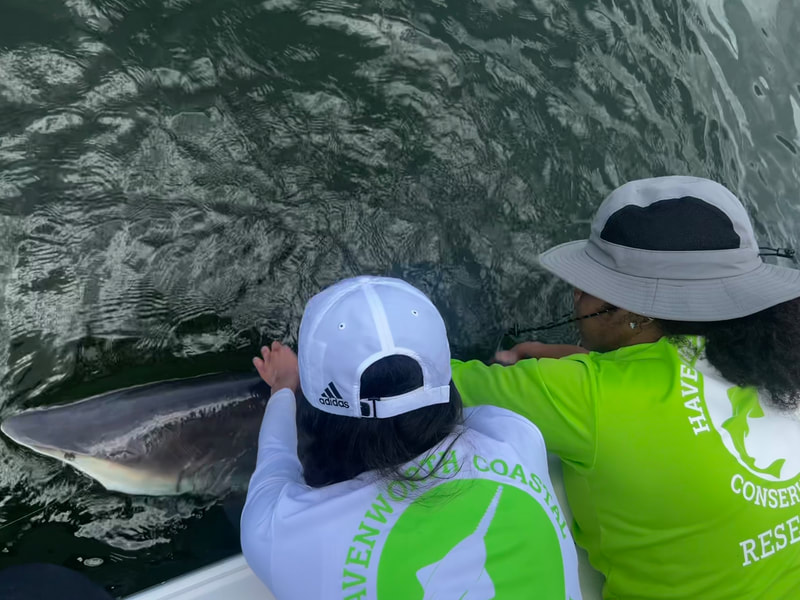
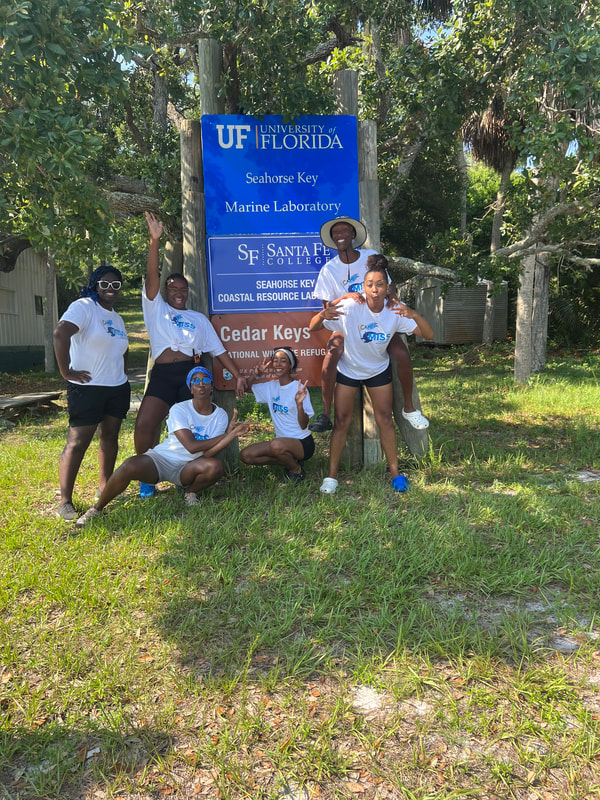
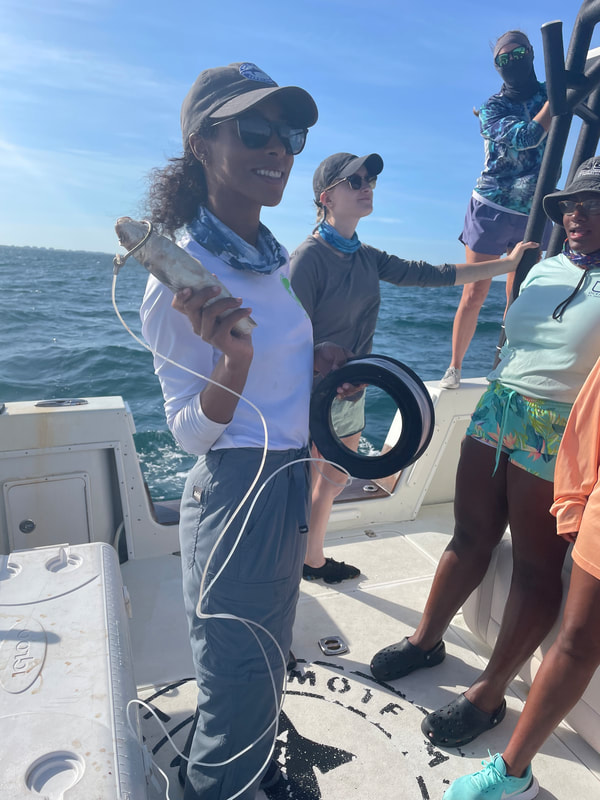
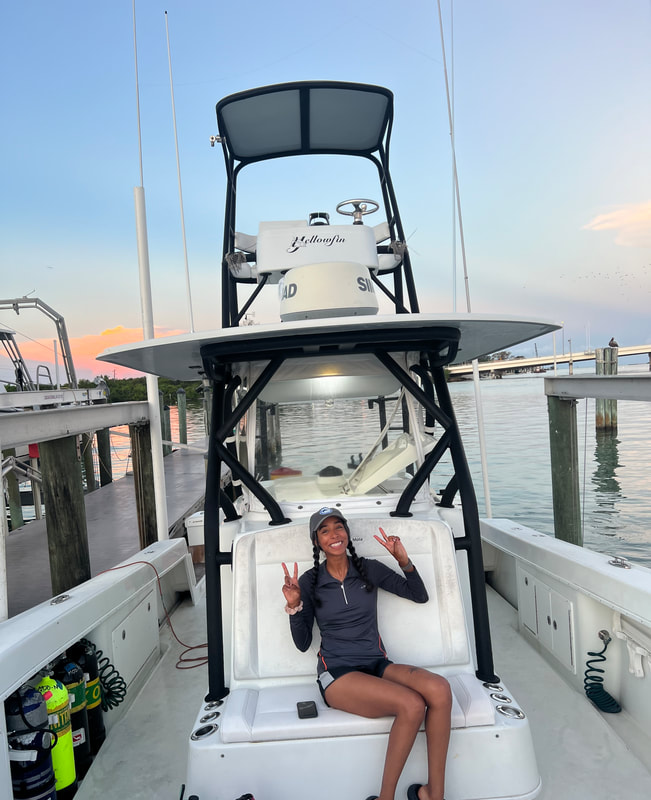
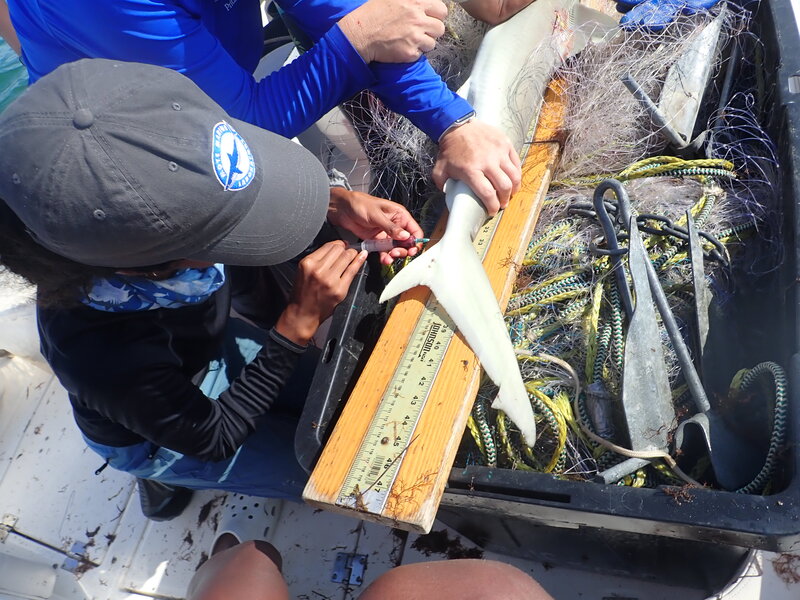
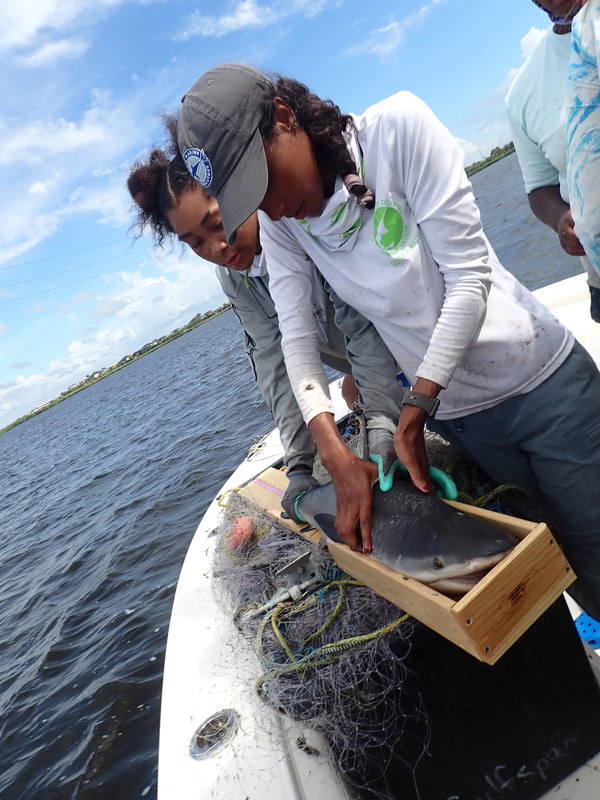
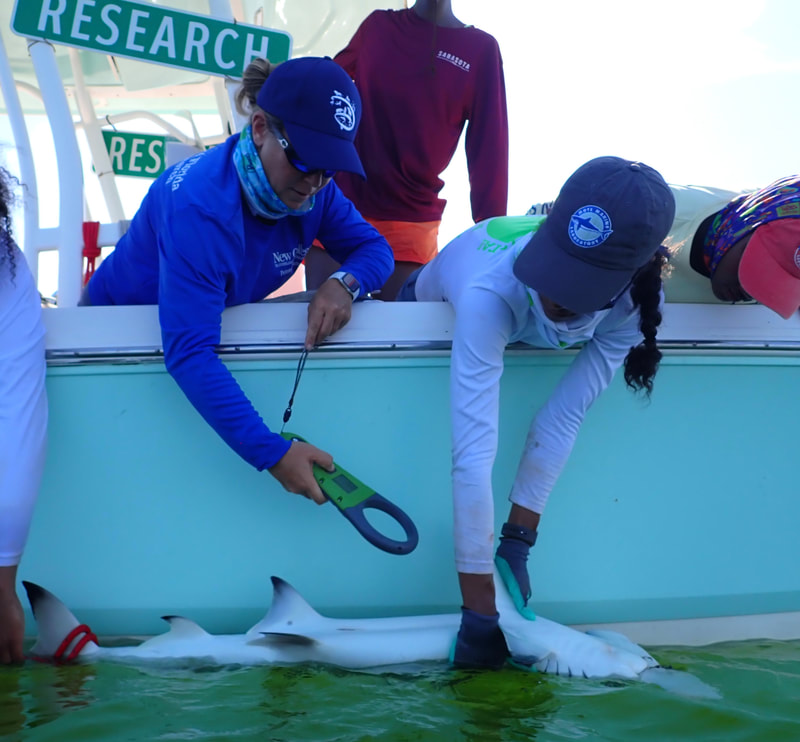
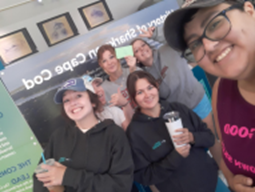
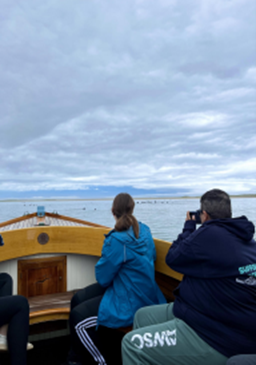
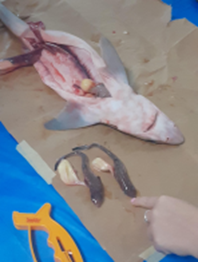








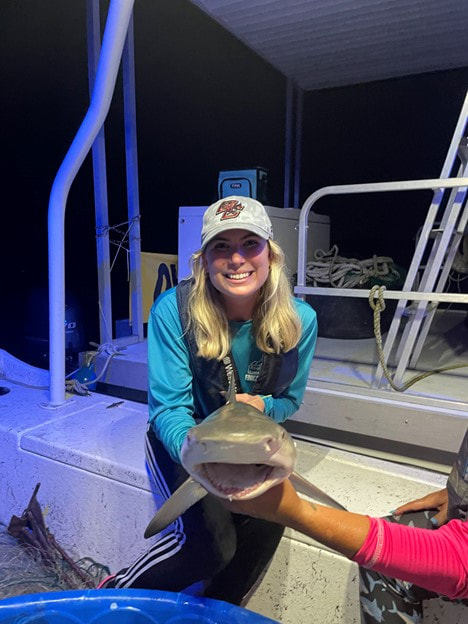
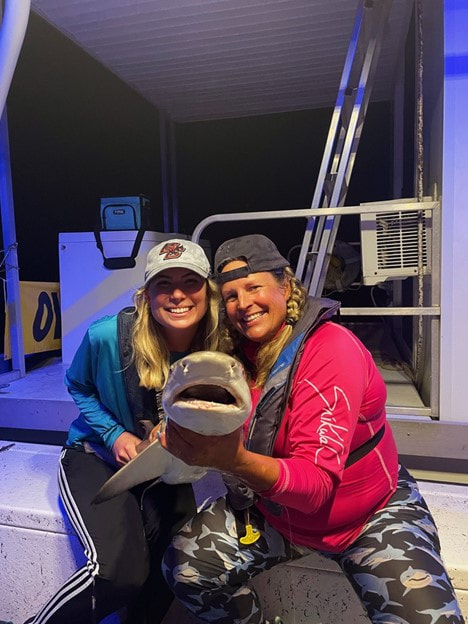
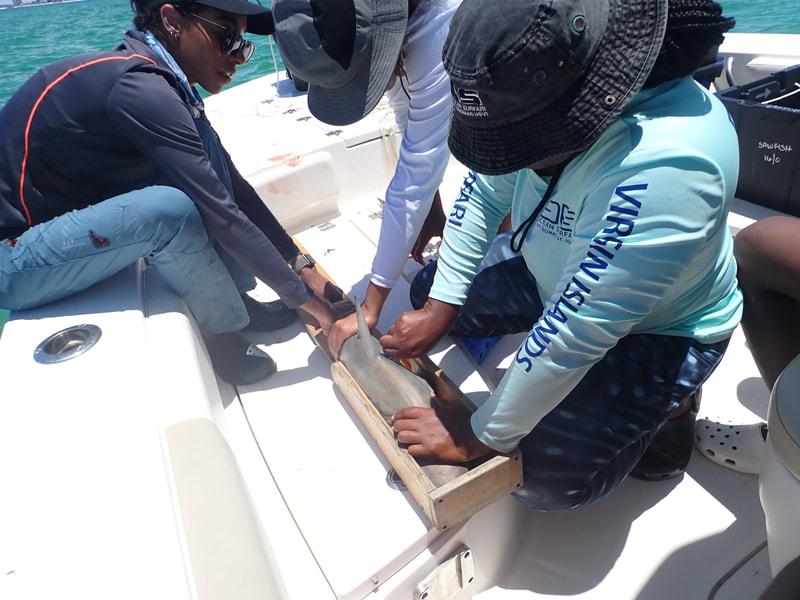
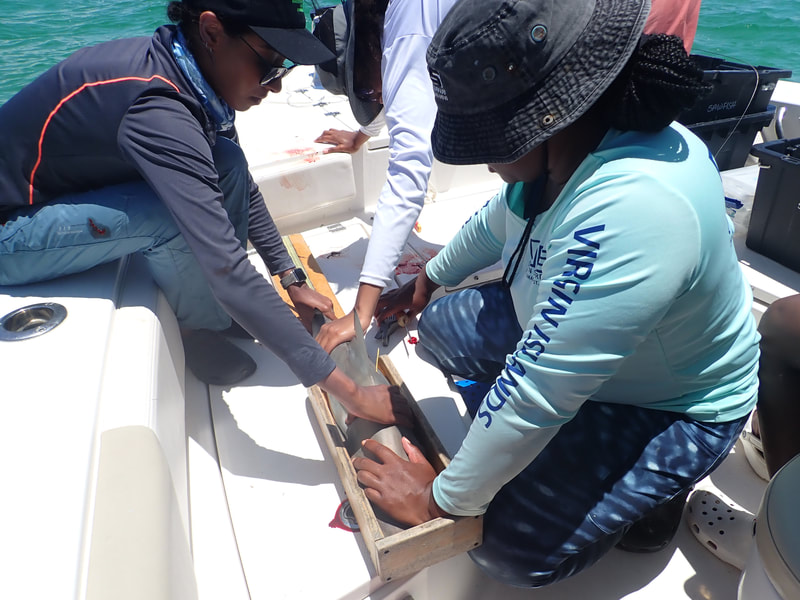
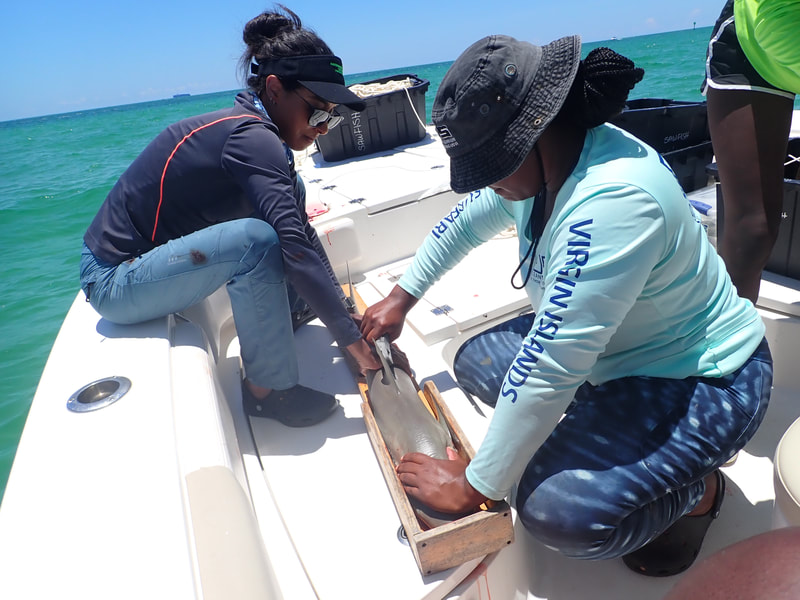
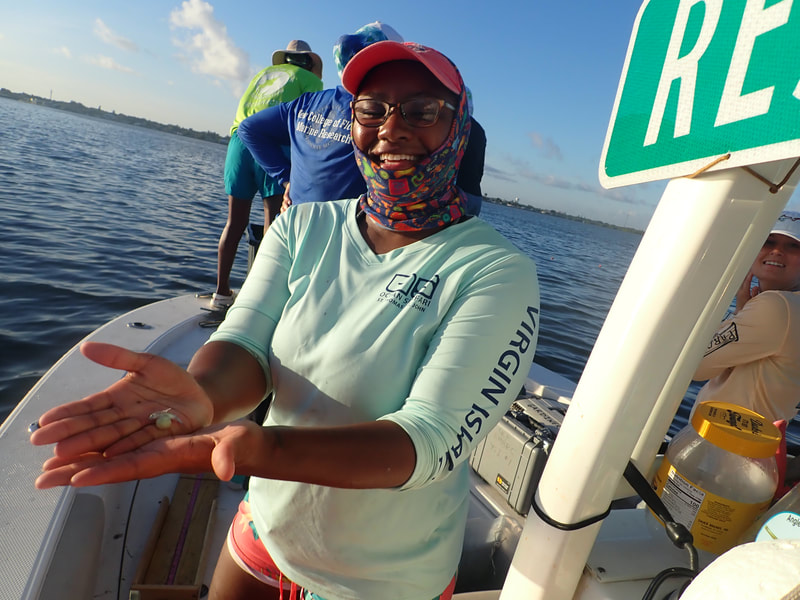
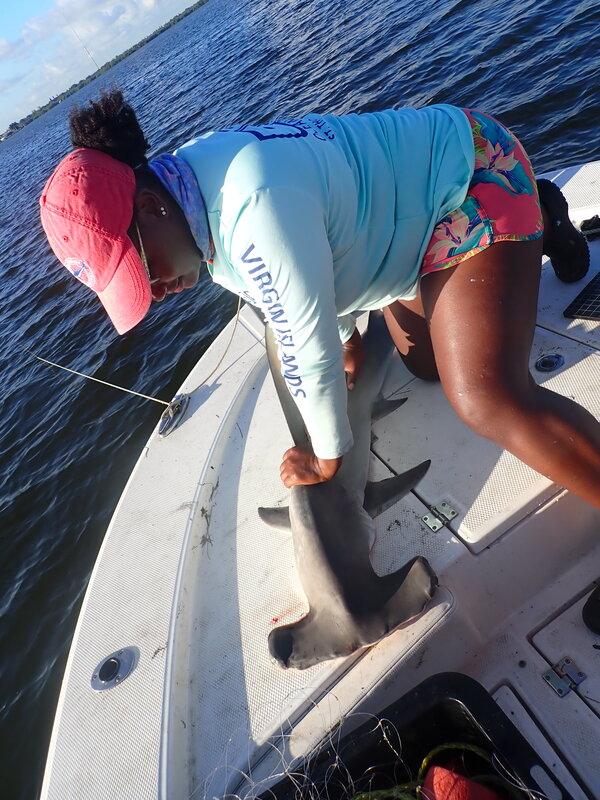
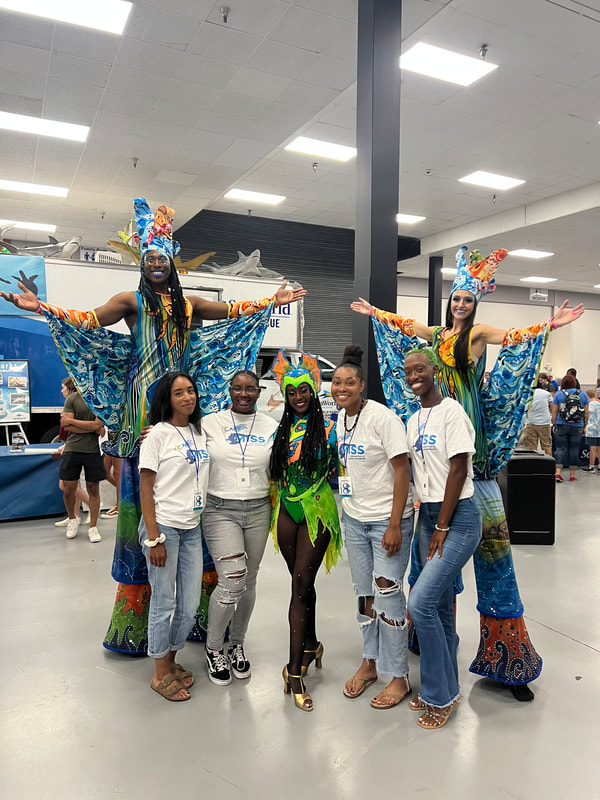
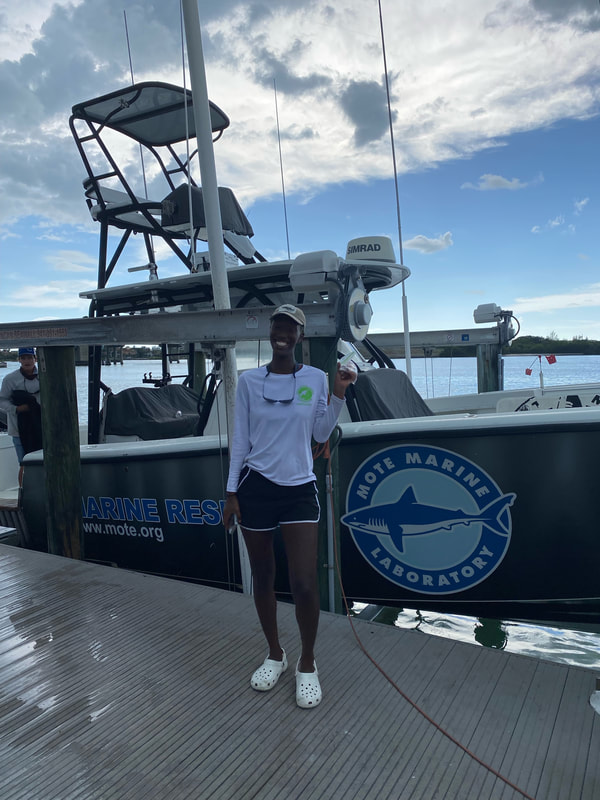
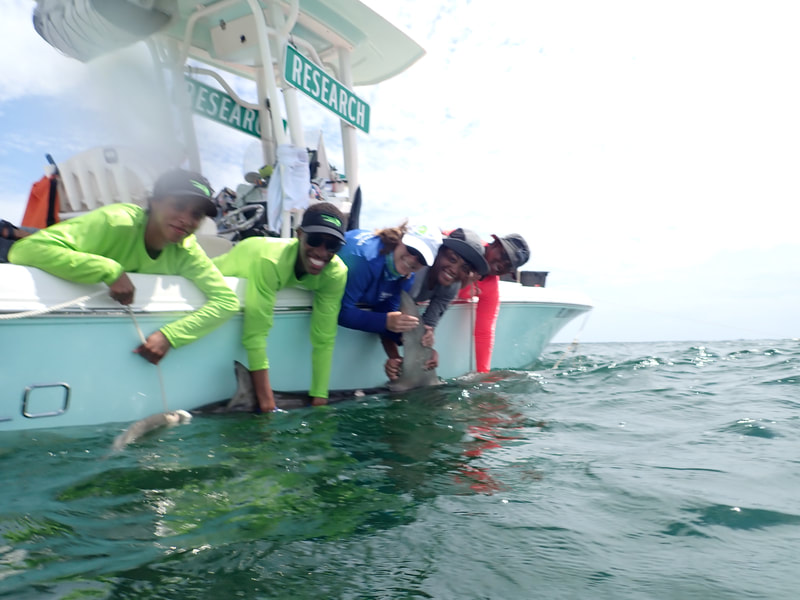
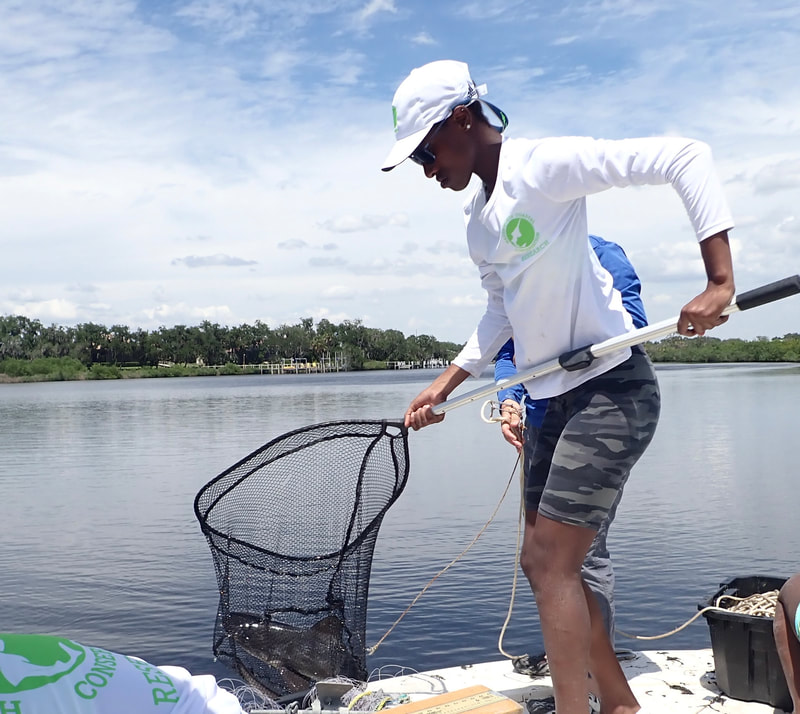
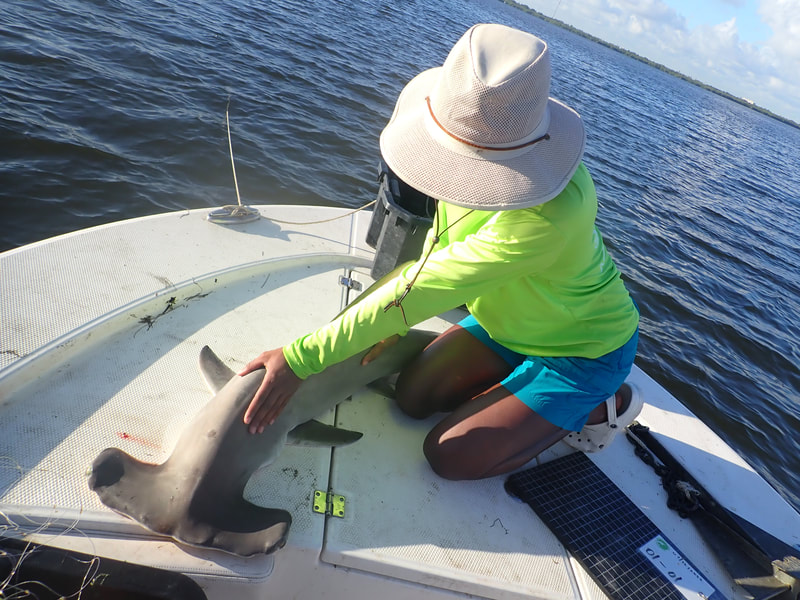
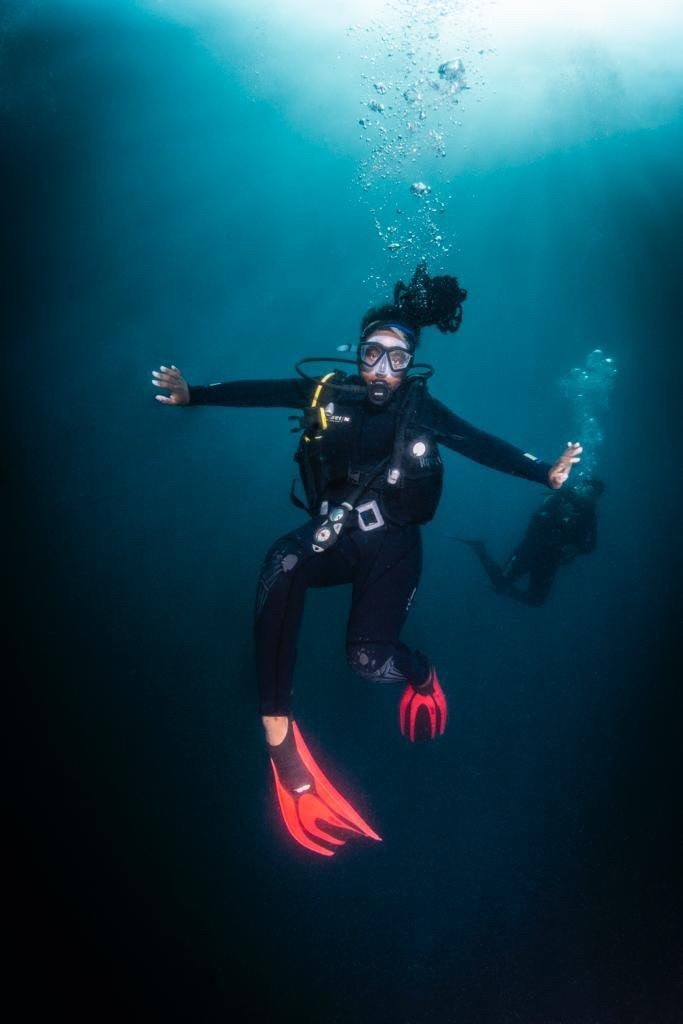
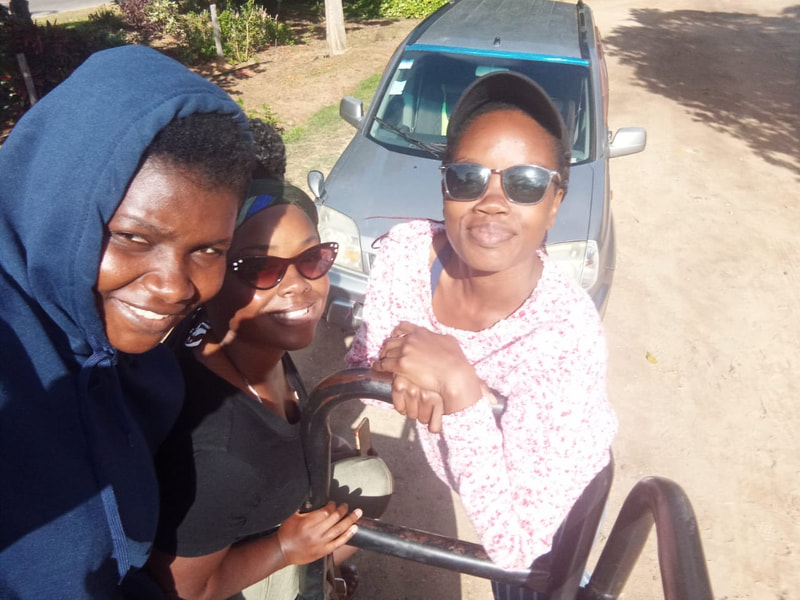
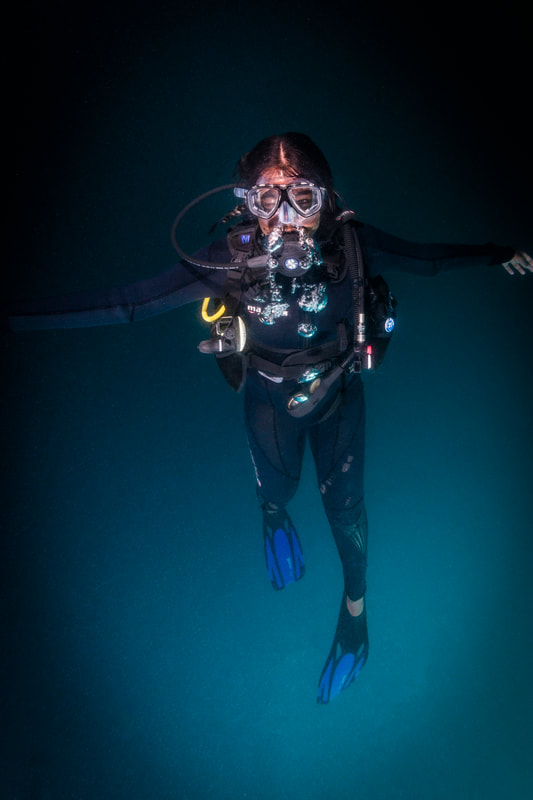
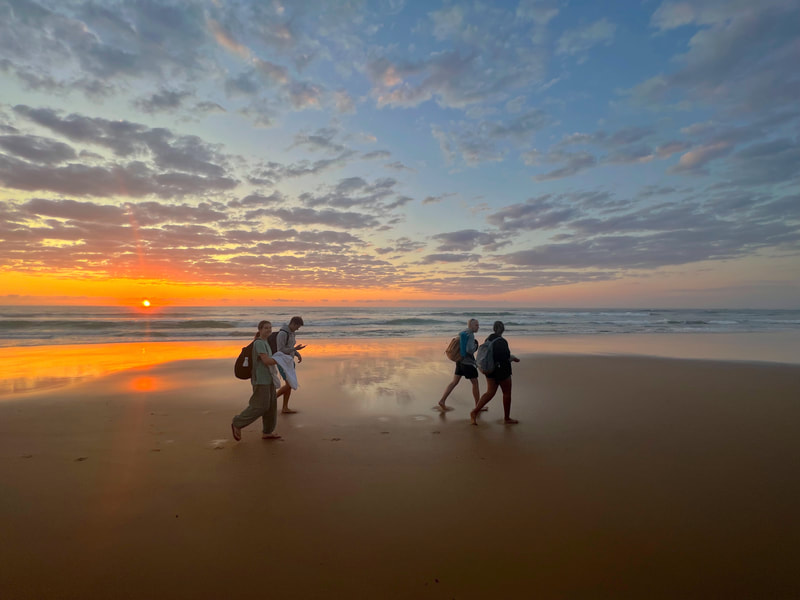
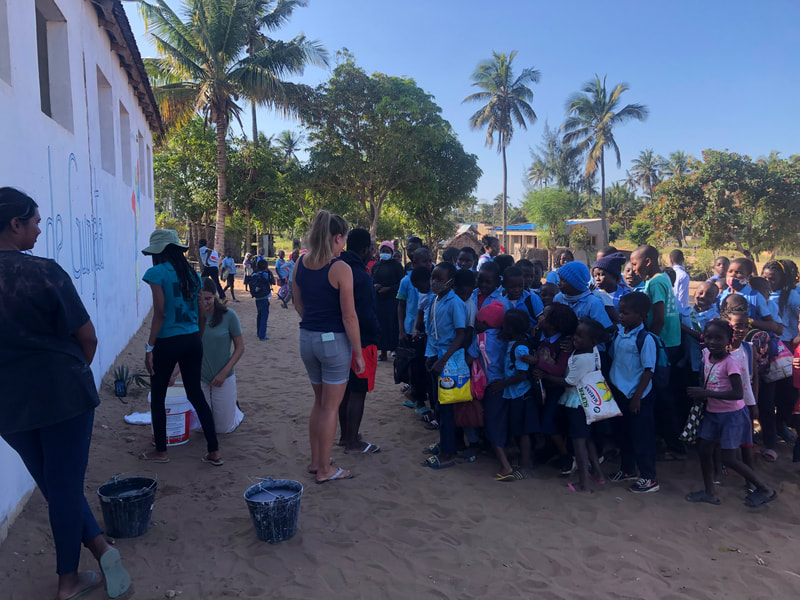
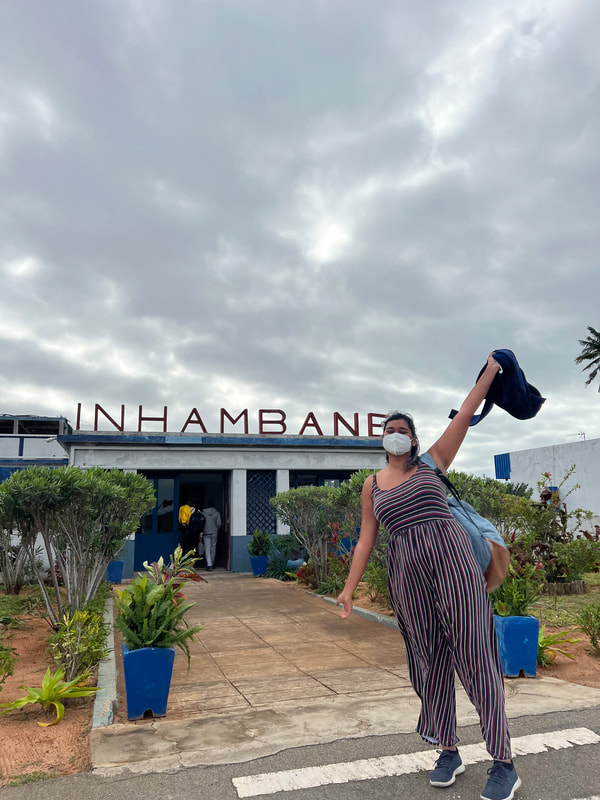
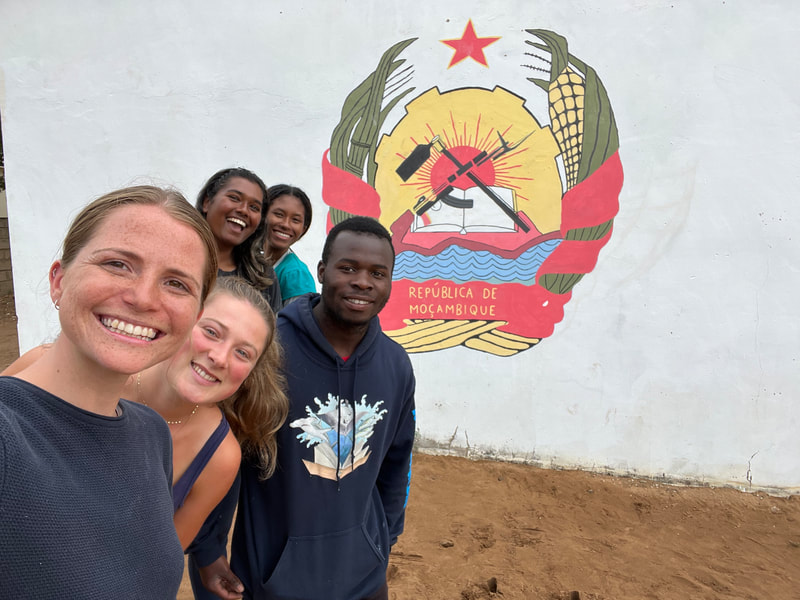
 RSS Feed
RSS Feed
